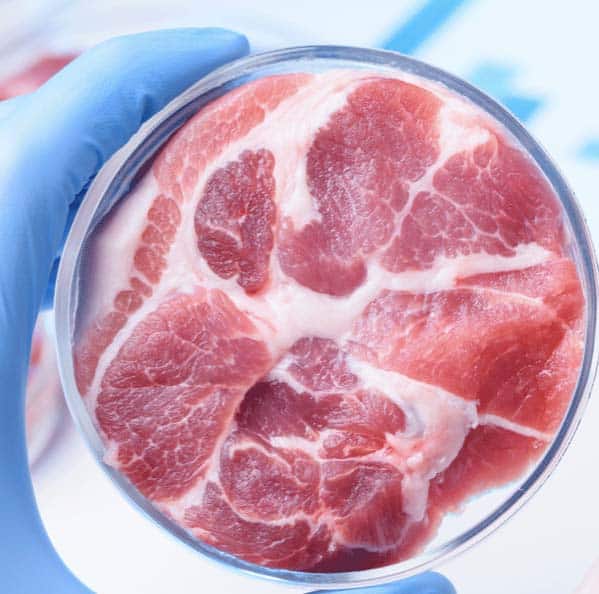Royal Agricultural University report puts cultured meat under the spotlight

A new report from a team led by the Royal Agricultural University (RAU) in Cirencester, Gloucestershire, has shown how using by-products from farming could scale up cultured meat production and bring down costs.
This type of agriculture sees meat produced by culturing animal cells in a lab. Simple forms of such meat like mince and nuggets are already possible.
READ MORE: Farmers raise concerns about cultured meat
The report entitled 'Culture Clash? What cultured meat could mean for UK farming' looked at various issues and the university team partnered with nine UK farms to explore what cultured meat mean might mean for them. It also investigated the threats and opportunities as seen by a wide range of UK farmers.
"The environmental cost of meat production globally means we need to throttle back, and widening the range of safe, tasty, and affordable alternatives to traditional meat can help," said Professor Tom MacMillan, Elizabeth Creak Chair in Rural Policy and Strategy at the RAU, who led the study.
"While the jury is out on whether cultured meat will fit the bill, we’ve found that it needn’t spell disaster for farmers.
"The farmers who spoke to us for this study had lots of concerns about the technology but, for the most part, had many bigger challenges on their plates. Some were also interested in its opportunities, from supplying raw materials to even producing it on their farms," he added.
Professor MacMillan also noted that some places around the world had banned cultured meat in the name of protecting farming.
"But instead of seeing this as ‘all or nothing’, we explored where there could be win-wins," he said.
"Building bridges with farmers is certainly in the cultured meat companies’ interests, as some are starting to see. More surprisingly, we found that keeping the door open may serve farmers better too."
Farming by-products, which could be used in cultured meat production include leftovers from making rapeseed oil and blood from traditional meat production, which is sometimes used as fertiliser or wasted. Both are rich in amino acids, which are the costliest and least sustainable ingredients used to grow cultured meat.
Using these by-products could reduce the environmental footprint of cultured meat by using less energy, water, and land, and make the end product more affordable, the research found.
In addition, linking cultured meat production and farming could benefit some farmers and address concerns over the threat the new technology poses to traditional farming, which has led Italy and some US states to ban cultured meat.
The farmers' main concerns were around wider social issues, such as big companies controlling the food system or the knock-on effects for rural communities, more than about the direct impact on their businesses.
The RAU was the first agricultural college in the English-speaking world. It has been at the forefront of agricultural education, research, and innovation since 1845.


















